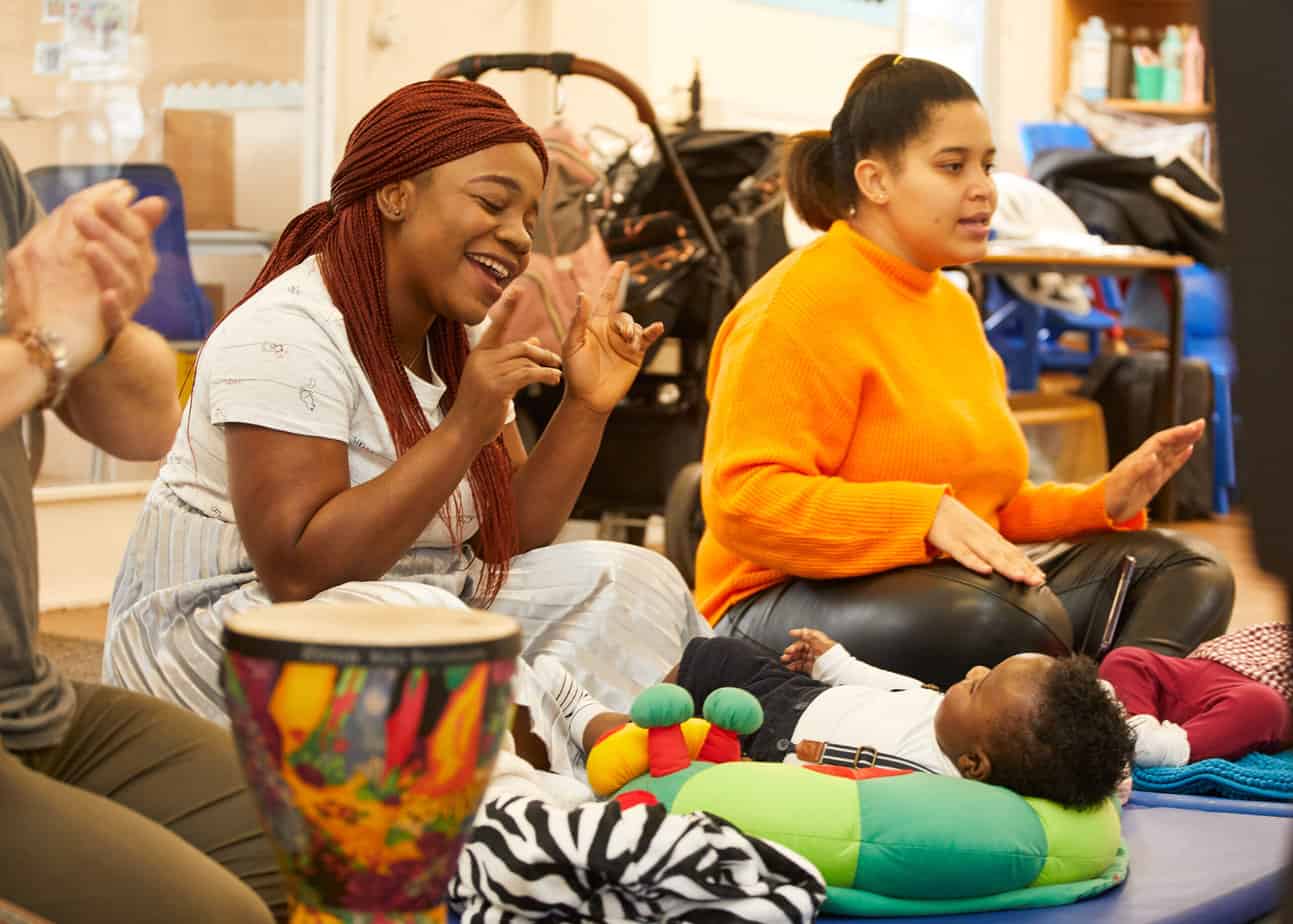Becoming a good enough mother
Ali Pember
Coach, counsellor, mindfulness and hypnobirth practitioner.
Instagram @goodenoughmamas
Summary
In 1953 a British paediatrician and psychoanalyst named Donald Winnicott termed the phrase ‘good enough mother’ in response to a study of many mothers and babies and his theory that children can benefit from imperfect parenting.1,2
As parents we can feel enormous pressure to produce children that are ‘good’ or that let us sleep and function without an overwhelming sense of chaos. Yet many of the structures and mechanisms that allow us to feel supported throughout our childbearing years are very different to how they used to be. Knowing how to manage when everything is less than perfect can present as an enormous challenge.
This article explores what is meant by the term ‘good enough mother’ and allows us to identify ways in which we can all seek reassurance that our love, care and compassion for our children and babies is all that is really necessary.
What does it mean to have a ‘good’ baby?
When they said, “Is she a good baby?” what I heard was “Are you a good mother?”
There are times, eight years on, when I think back to myself as that vulnerable new mum. I cared so very much about getting it right, that I did not overly enjoy early motherhood.
So much of how we feel about ourselves as mothers stems from what we think other people think of us.3 It is so important that we remember that there is no such thing as a ‘good’ baby, just a baby placed somewhere on a normal distribution curve of human behaviour, no matter how insensitive the comments to the contrary may be.4
I remember so clearly having
the baby who disrupted all the baby classes,
the baby who would not nap on schedule (or nap much at all),
the baby who did not seem to want to sleep at night unless she was burrowed up into my armpit or attached to my breast,
the baby who just seemed to be completely ‘wired’ all the time, and, well, wired a bit differently.
I had studied developmental psychology. I knew about attachment theory.5 I still felt like I had failed.
I did not feel at home with the mums who had their babies on perfect nap time schedules. Nor did I feel at home with the mums who said things like “my baby rarely cries because I meet his needs.”
I was doing my best to meet her every need, but she still cried. A LOT.
Over the years, I’ve come to realise what it means to be a ‘good enough’ mother. While the definition of that will vary for each parent, I wanted to share my thoughts on why finding that sense of ‘good enough’ is so important, and what you can do to move towards it.
Why is it that so many mothers feel that they have failed in some way?
There is a huge double bind for modern mothers.
There is no real acknowledgement of the enormous change that is undertaken when we have a baby. We are subtly encouraged to ’bounce back’ to our pre pregnancy bodies and pick up where we left off in our careers.
Yet the ‘perfect mother’ myth persists, frozen in time like 1950s advertisements on how to live.6
This perfect image of mother
is ever present and loving for their children,
never loses their calm
keeps a clean and tidy home,
looks hot (and I do not mean in a sweaty way),
cooks nutritious meals from scratch
Those expectations are bound to set mums up to fail. Because real life is messy.
Here are some of the factors that contribute to that feeling of never being good enough:
The mother load. The demands of work and home life are often in conflict. Mothers carry a disproportionate burden of household tasks, even where both parents are working outside the home. The mental load of all the things needed to keep family life functioning also tends to fall to mums.7
Lack of support. When we hear ‘it takes a village’ many of us look around and think ‘where is this mythical village?’ The structure of society has fundamentally changed. We don’t mother in community anymore. We often do not have family support, flexible working is not universally available and statutory help for families has been cut by successive governments.8
Comparison Culture. Social media is a great tool for finding support at 3.00am in the morning, but it can also fuel unhelpful comparisons. You often see the edited highlights of other people’s lives and compare those to your own shoddy reality. In real life too, seeing other mums who appear to ‘have it together’ can be a trigger for feelings of inadequacy.9
Perfectionism. Transitioning to motherhood requires a huge shift in identity. Motherhood and parenthood have an uncanny ability to unravel your previous certainties and self-confidence. You may seek to apply the same kind of standards you had in other areas to life with a baby and find that you come up short.10
What can you do to start feeling ‘good enough’ as a mother or new parent?
Some of the points made may not hold true for you. But it is useful to reflect on what factors contribute to your feelings of not being good enough. This gives you a chance to do something about them.
Consider what crops up most often for you. Do you feel resentment because your partner does not do their fair share? Do you feel isolated because you have not got family nearby? Do you measure yourself by unrealistic standards?
Going back to the factors I identified, some of these suggestions might help:
Name and share the mother load. Many mums find it difficult to ask for help because it feels like an admission of failure. Try not to shoulder everything until you collapse with mental and physical exhaustion. Make a list of all the invisible things you do. Give full ownership of tasks to someone else if you can. Including the thinking and planning part. Prioritise tasks ruthlessly. Identify if there are some tasks that you can give to somebody else.
Build your own village. Although family and community help may be lacking, there are many more resources available online. Seek out peer support groups. You may find your support among others experiencing the same challenges as you or within , breastfeeding difficulties, gender non-conformity, different parenting styles, and so on. Sharing your experience and finding those who feel similarly is incredibly empowering.
Notice what sustains you. Does being on social media make you feel uplifted or deflated? Edit your feed so it contains supportive messages aligned to your values, rather than aspirational images that you find hard to live up to. Similarly, think about who and what sustains or drains you in real life. Devote at least a little bit of time each day to activities and connections that nourish you.
Choose process over perfection. Motherhood is not an outcome or a perfect state of being that you arrive at. It is very much a process of becoming. ‘Matrescence’ is a word used to describe this period. It encompasses profound psychological, neurobiological and physical change. You need to give yourself a great deal of time and space to settle into your new role.
Finally, know that being good enough is good enough.
It was Donald Winnicott who first coined the term ‘good enough’ mother.1,2 He observed that healthy mother-child interaction contains many instances where the mother psychologically ‘drops’ the baby, when they are not immediately attuned or available.
In his words, “The good-enough mother … starts off with an almost complete adaptation to her infant’s needs, and as time proceeds she adapts less and less completely, gradually, according to the infant’s growing ability to deal with her failure. Her failure to adapt to every need of the child helps them adapt to external realities.”
There are constant moments of connection and disconnection in parenting. The important thing is to reconnect when you are able to.
The perfect mother myth is damaging for everyone. It sets us up to fail. It doesn’t allow us to model the ‘rupture and repair’ necessary in any healthy relationship.12 So our children suffer too.
I hope that hearing my thoughts has gone some way to convincing you that you are already a Good Enough Mama.
I need to keep reminding myself as well. We are all just very human, very wonderful and a very imperfect work in progress.
Links to resources
 Books
Books
The Book You Wish Your Parents Had Read (and Your Children Will Be Glad That You Did) – Philippa Perry
The Gentle Parenting Book – Sarah Ockwell-Smith
 Social Media
Social Media
Peanut @peanut – Support, connection and community throughout all stages of motherhood.
Mush @mushmums – The friendliest place for mums. Mush provides friendship, support and virtual meet ups.
References
1) WINNICOTT DW. Transitional objects and transitional phenomena; a study of the first not-me possession. Int J Psychoanal. 1953;34(2):89-97. PMID: 13061115.
2) Winnicott DW. Mirror-role of the mother and family in child development. In: Lomas P, editor. The predicament of the family: a psycho-analytical symposium. London, UK: Hogarth Press; 1967. pp. 26–33.
3) Liss, M., Schiffrin, H.H. & Rizzo, K.M. Maternal Guilt and Shame: The Role of Self-discrepancy and Fear of Negative Evaluation. J Child Fam Stud 22, 1112–1119 (2013). https://doi.org/10.1007/s10826-012-9673-2
4) Beatrix Vereijken, The Complexity of Childhood Development: Variability in Perspective, Physical Therapy, Volume 90, Issue 12, 1 December 2010, Pages 1850–1859, https://doi.org/10.2522/ptj.20100019
5) Bowlby J (1953). Child Care and the Growth of Love. London: Penguin Books.
6) Chodorow, N. and Contratto, S. (1992) ‘The fantasy of the perfect mother’, in Thorne, B. and Yalom, M. (eds.), Rethinking the Family: Some Feminist Questions, Boston: Northeastern University Press, pp. 191–214.
7) Villalobos, A. Motherload: Making It All Better in Insecure Times (2014). Berkeley: University of California Press
8) Marshall, N. L., Noonan, A. E., McCartney, K., Marx, F., & Keefe, N. (2001). It takes an urban village: Parenting networks of urban families. Journal of Family Issues, 22(2), 163–182. https://doi.org/10.1177/019251301022002003
9) Padoa, Tricia & Berle, David & Roberts, Lynette. (2018). Comparative Social Media Use and the Mental Health of Mothers With High Levels of Perfectionism. Journal of Social and Clinical Psychology. 37. 514-535. https://doi.org/10.1521/jscp.2018.37.7.514
10) Lee, M. A., Schoppe-Sullivan, S. J., & Kamp Dush, C. M. (2012). Parenting Perfectionism and Parental Adjustment. Personality and individual differences, 52(3), 454–457. https://doi.org/10.1016/j.paid.2011.10.047
11) Athan A, Reel HL. Maternal psychology: Reflections on the 20th anniversary of Deconstructing Developmental Psychology. Feminism & Psychology. 2015;25(3):311-325. https://doi.org/10.1177/0959353514562804
12) Kemp, C. J., Lunkenheimer, E., Albrecht, E. C., & Chen, D. (2016). Can We Fix This? Parent-Child Repair Processes and Preschoolers’ Regulatory Skills. Family relations, 65(4), 576–590. https://doi.org/10.1111/fare.12213








